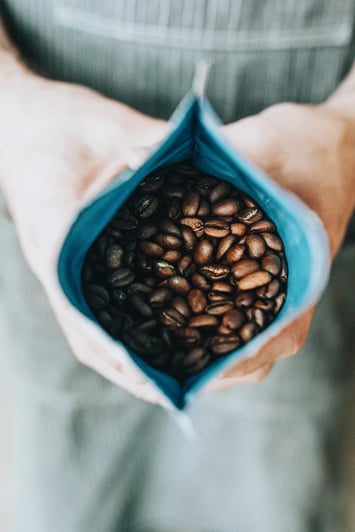Our CEO, Michael Chrisment, recently joined the IBM Food Trust Summit to talk about how farmer...
Earlier this month, a TV series in the UK reported footage of children picking coffee that was claimed to be entering the supply chain of some of the leading coffee company’s in the world.
Since then we have been asked by supply chain partners, NGOs, and governments for ideas of how to combat child labor in agriculture supply chains.
For starters, traceability has to be the first point of action. The vast majority of agriculture goods produced by smallholder farmers are not traceable back to the farm level and even less are organized in a way where information can be easily accessible. Farmer Connect’s use of blockchain technology and digital identity makes this possible in a matter of seconds. We also understand that traceability is not an all or nothing idea. It can start at a mill level, progress to a region or cooperative and ultimately reach the farm. However, the industry should commit to building 100% traceable supply chains as part of any commitment made in sustainability.
Second, many certification/verification bodies, along with NGOs, do valiant work in the field to attempt to verify compliance of rigid standards that most definitely do not allow child labor in its worst form. However, these checks are oftentimes done with enough advance notification that problems can be hidden. While there is value in field surveys and we believe they should be done in even greater frequency, the truth is we need to make farmers and their communities part of the global ecosystem. Empowering responsible women and men to be given a digital tool to report violations that are witnessed any day of the year would ensure a certain level of self-policing that if done properly could provide an even stronger protective support. Additionally, many times we speak about digital traceability down to the farmer name but there is nothing stopping us from digitally certifying who has picked the coffee, cocoa or other product. The Farmer Connect Application named Farmer ID allows pickers to have a self-sovereign digital identity that can provide a digital audit to ensure farmers are avoiding child labor and paying government-regulated wages.
Third, we need to be fair to farmers. If they do not have economic viability then how can we impose on them additional social and environmental responsibilities? The industry must recognize that squeezing the last penny of savings out of the supply chain might lead to small, incremental increases in corporate profits that earns someone a corner office. Yet this comes at a much higher societal risk. Responsible sourcing means ensuring that everyone adding value in the supply chain is fairly compensated. Farmers should not be paid just enough to feed their families, but also to afford health insurance, pensions, to pay farmworkers a fair wage and to manage good environmental practices. In Davos, many corporate CEOs spoke of reinventing capitalism and the idea that all stakeholders are important, not just shareholders. If they truly believe this, we challenge them to take care of the farmer, who is their key stakeholder. Farmer Connect is built to track payments, ensure the money gets where it is supposed to go, record behavioral credentials, differentiate sustainable farmers and ensure payment railways back to the farmer are created. 1% for the Planet has done wonders for environmental work. Why couldn’t our industry consider a second payment, dividend sharing program (think “5% For the Farmer”) for farmers that sustainably grow the products they sell. Due to technological leaps in traceability and mobile penetration, this can become a reality today.
Lastly, we need to understand that the world is not perfect. We recently met a seventeen-year-old boy with a disabled mother, no father and three siblings. His choice? Drop out of school and work illegally or allow his family to starve to death. How about children who help on the family farm after school? A child in America with a lemonade stand is an entrepreneur. Girl Scouts going door to door to sell cookies are future CEOs and leaders. So at what point do we draw the line that eliminates the worst in human behavior but isn’t hypocritical? We believe the industry should indeed have a zero-tolerance policy for the worst forms of child labor but at the same time, an honest and clear definition of what is also acceptable should be determined. Then a true educational campaign can begin to socialize these new norms.
This is an issue much larger then Farmer Connect, however, it is a conversation worth having and we are happy to be part of it.
